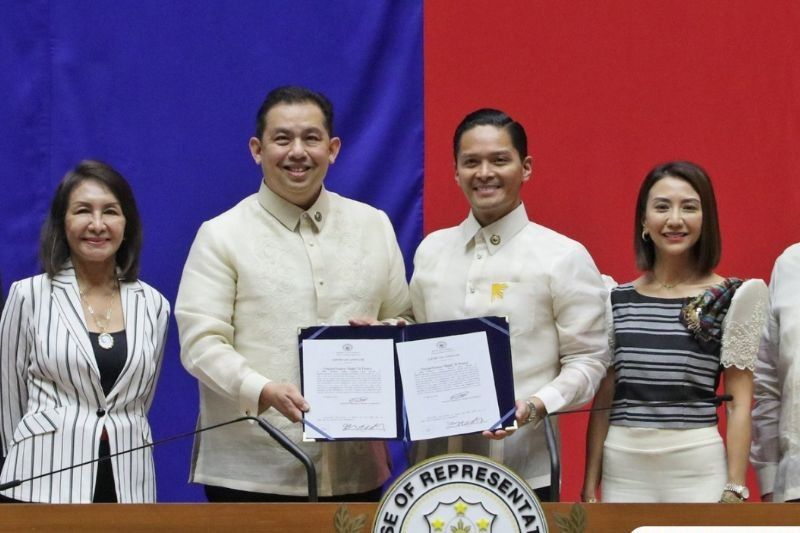
Upgrade to High-Speed Internet for only ₱1499/month!
Enjoy up to 100 Mbps fiber broadband, perfect for browsing, streaming, and gaming.
Visit Suniway.ph to learn
Mayen Jaymalin - The Philippine Star
April 9, 2025 | 12:00am
MANILA, Philippines — Candidates are now under mounting pressure to uphold ethical campaign practices, as the Commission on Elections (Comelec) and other government agencies crack down on foul language, misuse of personal data, exploitation of emergency alert systems and political interference in government payout programs.
With the May 2025 midterm polls drawing near, Comelec Chairman George Garcia announced that a supplemental resolution has been adopted to broaden the existing Anti-Discrimination and Fair Campaign rules, incorporating a “safe space” provision aimed at curbing inappropriate behavior during the campaign period.
“The use of foul language is now considered an election offense,” Garcia told reporters yesterday, noting that the move was prompted by recent incidents involving candidates resorting to offensive language in public appearances.
The new provision also seeks to prevent discriminatory remarks against women, the elderly and other vulnerable groups – acts that may not be explicitly covered under previous regulations.
Garcia emphasized the importance of maintaining respectful discourse throughout the campaign, revealing that the Comelec is currently investigating a candidate in Manila for the use of double-meaning jingles, which the commission also considers a form of inappropriate campaigning.
The Comelec chief also urged voters to take an active role in safeguarding the integrity of the elections through responsible social media use.
“We hope that social media will be used not to harm others, but to protect everyone’s rights,” Garcia said.
Garcia assured the public that the Comelec would act swiftly on confirmed violations and that disqualification rulings, if backed by evidence, would be issued ahead of election day.
Vote buying
In a separate development, Garcia revealed that around 50 show-cause orders are being issued to candidates suspected of vote buying.
Comelec’s anti-vote-buying task force, Kontra Bigay, is currently investigating both national and local candidates allegedly engaged in the practice.
Beyond foul language and vote buying, Malacañang, for its part, cautioned candidates against exploiting the government’s Emergency Cell Broadcast System (ECBS) for campaign purposes.
Presidential Communications Undersecretary Claire Castro issued the warning following reports that some residents in a province received emergency alerts containing the name of a local candidate, raising suspicions of unauthorized political use of the ECBS.
“I hope they will not abuse this emergency broadcast system because this is intended only for emergency situations. This shouldn’t be abused by anyone for personal gain,” Castro said at a press briefing.
The ECBS is a government-issued public alert mechanism designed for emergency situations such as typhoons, earthquakes and other threats to public safety.
Castro added that the Department of Information and Communications Technology and the National Telecommunications Commission are currently investigating the reported incident.
“Anyone who is proven to have violated the law will be charged,” she warned.
Earlier, Sen. Grace Poe expressed concern, saying the alleged misuse of the ECBS not only undermines its integrity but also poses potential security risks, especially if exploited to disseminate misinformation.
Echoing Poe, Bayan Muna chairman and former lawmaker Neri Colmenares also denounced the incident, calling it a “gross and dangerous violation of public trust.”
‘Uphold data privacy’
Candidates are also reminded to uphold the Data Privacy Act of 2012 in all election-related activities.
In a statement released Monday night, the National Privacy Commission (NPC) emphasized that any collection and handling of personal data must comply with principles of transparency, legitimate purpose and proportionality.
“Individuals must be clearly informed of the purpose of data collection, and the amount of information gathered must be limited to what is necessary,” the agency said.
“The processing of personal information must always be based on a lawful basis, such as valid and freely given consent,” it added. — Helen Flores, Rainier Allan Ronda, Jose Rodel Clapano

 2 months ago
15
2 months ago
15



